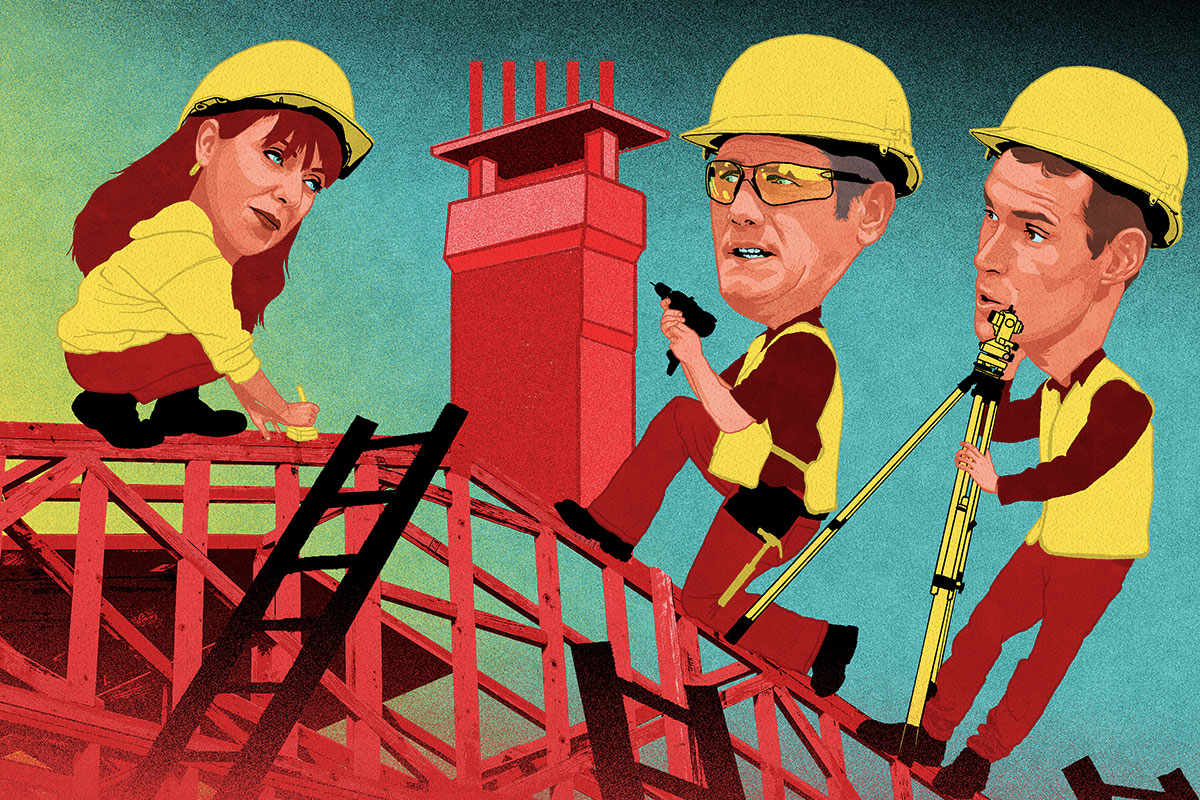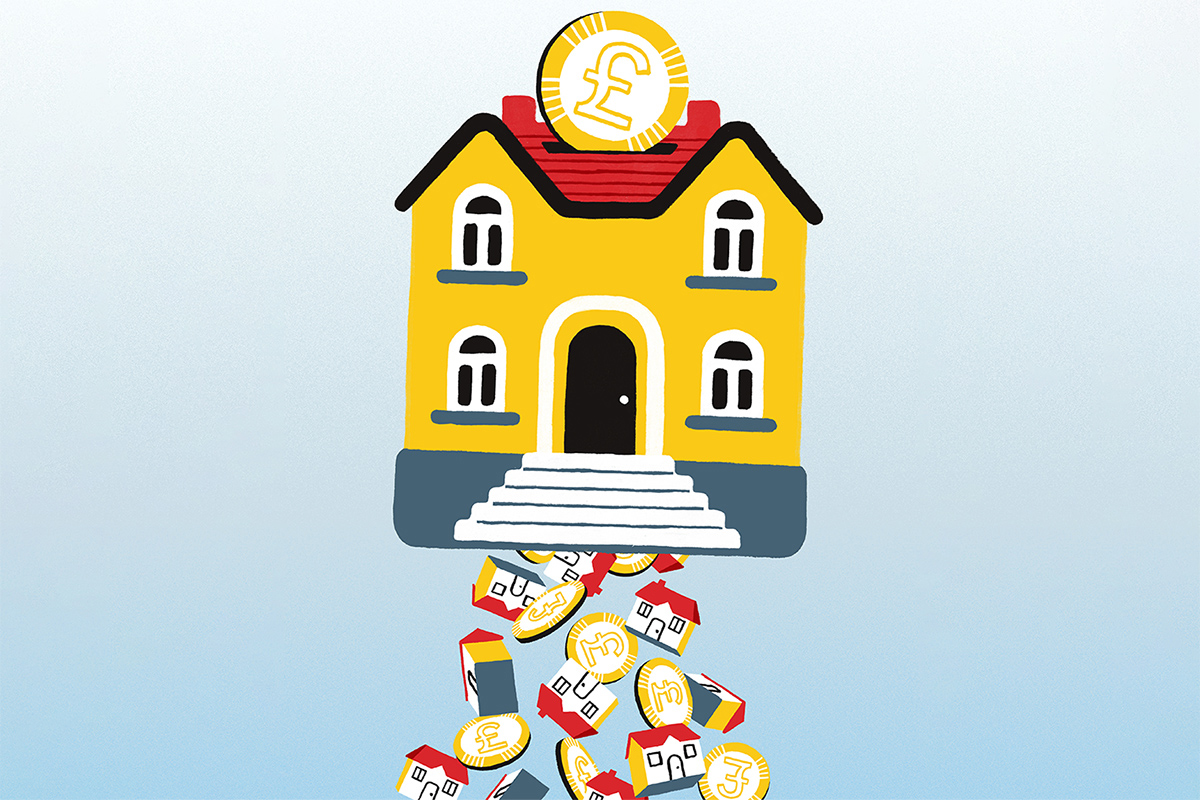You are viewing 1 of your 1 free articles
The case for reclassifying housing as significant national infrastructure
With a new government in office, Nick Atkin, chief executive of Yorkshire Housing, asks whether a shift in funding could tackle the housing crisis and support housing associations’ call for a long-term approach
It’s now widely accepted that we have a desperate shortage of affordable homes across the country. Each year, we fail to build the number of homes we need, worsening a housing crisis that has been decades in the making. We’re also fighting against a housebuilding system that seems incapable of delivering on the scale we need.
Most of the policy changes and amendments successive governments have made over the past 30 years have had little impact on the housing crisis. The numbers speak for themselves. Across the UK, there are currently 1.3 million households on housing waiting lists.
Although there were several welcome legislative changes in the King’s Speech, we desperately need certainty through a long-term plan for housing which is supported by guaranteed funding that keeps pace with rising costs.
The reclassification of investment in housing as infrastructure spending overseen by the National Infrastructure Commission will deliver this long-term certainty.
This isn’t a new idea. It’s been talked about before, but hasn’t been given the attention it deserves. I wrote about this in Inside Housing in both 2019 and 2020. It’s also something both Shelter, the charity, and the Confederation of British Industry have previously made the case for.
With just 9,561 social homes built last year, now is the time to have a meaningful conversation about how we fund the delivery of new affordable homes. Why is providing everyone with a safe, secure home less important than roads, railways and airports?
In truth, we have a bit of an identity crisis. Is housing a human right, like the right to education? Or is it essential infrastructure? Currently, it’s neither.
Just in case you still need to be convinced that housing should sit alongside energy, water, road, rail and ports as essential infrastructure, let me make it simple.
Housing is a basic human need
Having a safe, secure and affordable place to live should be non-negotiable. Despite this, there are at least 309,000 people classed as homeless in England, including 145,000 children.
Just pause for one moment and think about those numbers, and then consider the prediction from the National Housing Federation that these figures could more than double by 2045 without urgent action.
You’d struggle to find anyone that believes we don’t need food, water and shelter to live. So why isn’t shelter viewed as being just as essential or critical as water systems or transport networks that deliver food to supermarkets?
Maslow’s hierarchy of needs identified shelter, security and stability among the fundamental things a person needs for them to reach their full potential. This is hardly new thinking, as it dates back to 1943.
Well before Maslow shared his concept, shelter was the bedrock of civilisation. Whenever a new settlement was created, shelter was built first. We recognised its importance thousands of years ago, yet we’ve been derailed somewhere along the way.
Investing in building safe, secure and affordable homes gives people a firm foundation to achieve their potential. This is something Angela Rayner, the deputy prime minister and housing secretary, knows all too well and she speaks passionately about the difference it made to her life.
The reclassification of housing as essential infrastructure would deliver long-term funding certainty, helping the government to deliver the “biggest boost to affordable housing for a generation”, in her words.
There is a strong link between housing and health
Poor housing costs the NHS a staggering £1.4bn every year, according to the Institute of Health Equity.
Poor-quality homes, overcrowding and fuel poverty all contribute to a decline in physical and mental well-being. The longer-term funding and decision-making that would come with the reclassification of housing as essential infrastructure would enable more high-quality homes to be built, improving public health and reducing the burden on an already stretched health service, which is another of the new government’s priorities.
Increased support for housing associations would mean we’re able to deliver a greater level of support to local authorities to help them to reduce and prevent homelessness. It would also enable us to work more closely with partners to improve mental and physical health outcomes, reduce health inequalities, support independent living and provide safety and security for those who need it most.
It’s time that policymakers recognised the role housing plays in bringing people out of fuel poverty and tackling the country’s climate emergency.
Putting an end to funding uncertainty
One of the greatest barriers to building more homes is a lack of long-term funding certainty.
The current practice of treating investment in housing the same as day-to-day spending is counterproductive, leading to short-term thinking and missed opportunities in the name of fiscal control.
This is why we see the number of new starts drop towards the end of each Affordable Homes Programme funding cycle. We simply don’t know what’s coming next and are unable to commit huge amounts of money in the hope that there’s more funding coming our way.
The reclassification of housing as essential infrastructure would provide long-term funding certainty, giving the sector the confidence to increase its pipelines and deliver the affordable homes we so desperately need, as well as encouraging more outside investment into the sector.
The strategic partnerships being created with Homes England across the country shows what a positive difference these long-term settlements can make.
Providing funding for housing in the same way the government provides funding for road, rail and other infrastructure programmes would enable Homes England to build on the success of these partnerships and deliver even more.
With the government planning on spending up to £775bn on essential infrastructure projects over the next 10 years, surely housing deserves its fair share.
Creating jobs and boosting the economy
Delivering economic growth is the overriding priority for the government, and housing has an important part to play in creating the conditions suitable for growth. The sector has a joint responsibility to make sure decision-makers understand the role housing plays in boosting the economy.
Classifying housing as essential infrastructure would help to deliver large-scale housing projects that generate jobs, both during the build stage and in the longer term.
It’s a long-established fact that every £1 invested in social housing delivers at least £2.70 in economic benefits, supporting long-term growth and underpinning local jobs, skills and wider supply chains.
We also shouldn’t forget the role housing plays in supporting every single industry by providing somewhere for their workforce to live, just as the roads, railways and ports provide an essential link between goods and people.
If homes were more affordable, people would have more disposable income to spend on other goods and services. This would help to unlock economic growth, create jobs and deliver social equity on a scale not seen before.
Right now, when we build houses, it’s seen as borrowing money or getting grants, which is viewed as a cost to the economy. Instead, we should see building social housing as adding value to our country, like building roads or schools, and not just as increasing national debt.
Housing is high on the political agenda, and it deserves to stay there, but the question is: are politicians serious about tackling the housing crisis? And are they brave and bold enough to bring housing in line with energy, road and rail? Only time will tell.
Nick Atkin, chief executive, Yorkshire Housing
Sign up for our development and finance newsletter
Already have an account? Click here to manage your newsletters













